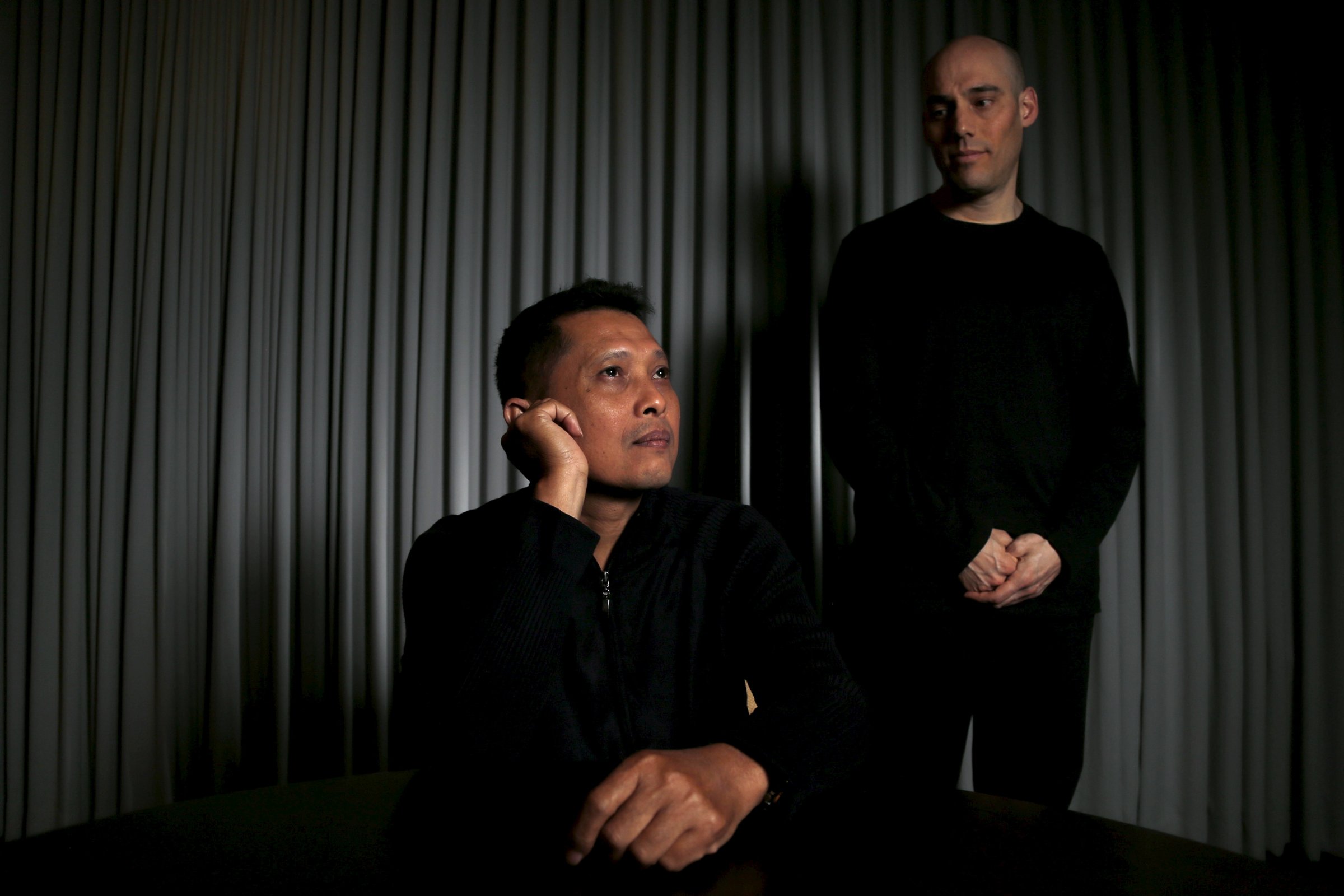
After filming a group of elderly gangsters boasting about their role in murdering suspected communists in the 1965–66 anticommunist pogrom in Indonesia, American filmmaker Joshua Oppenheimer followed it up with another documentary: this time focusing on the family of a massacre victim.
In The Look of Silence, to be aired on PBS on Monday night, optician Adi Rukun travels from village to village in North Sumatra not only to ply his trade but also to meet those who were responsible for killing his elder brother Ramli, one of an estimated 500,000 to 1 million Indonesians who lost their lives in the massacres. He sits down with his brother’s killers and their families — and encounters anger, hostility, denial and tears.
Adi’s quest for truth, and attempt at reconciliation, mirrors Indonesia’s own reckoning with one of the darkest chapters in its history. It has been 50 years after the mass killings, but the government has only taken the first step to investigate and reconcile with the country’s bloody past. In April, it held a two-day symposium that brought together survivors of the pogroms, scholars, human-rights activists and members of the military in one room.
“The symposium is an important step forward,” Oppenheimer tells TIME. “The Indonesian government facilitated a talk between the victims and the military, it was an acknowledgment of a whole new level.”
Read: There Were No Apologies at Indonesia’s First Hearing Into the Savage Killings of 1965
The 1965–66 killings happened at the height of the Cold War, triggered by the murders of six generals and other officers on the night of Sept. 30, 1965 and in the early morning of Oct. 1. General Suharto put the blame on the Indonesian Communist Party (PKI). Helped by Islamic organizations and paramilitary groups, the army launched a massive anticommunist witch hunt across the nation. Members and sympathizers of the PKI, suspected leftists and their families were killed, imprisoned, tortured and exiled overseas.
Many Western countries and media lauded the prosecution of the PKI, Asia’s second largest after the Chinese Communist Party. TIME magazine called Suharto’s rise to power, ousting the populist President Sukarno, “the West’s best news for years in Asia.”
The Act of Killing and The Look of Silence — both films won multiple awards and were nominated for Oscars — have had impact in both Indonesia and the U.S. Last October, U.S. Senator Tom Udall reintroduced a resolution calling on the U.S. government to declassify more documents related to the massacres. Previously declassified U.S. documents showed how American officials provided covert assistance to forces fighting to annihilate the PKI.
In March, Indonesia’s National Commission on Human Rights wrote a letter to the White House asking President Obama to declassify the documents pertaining to the events of 1965. Oppenheimer himself has called the U.S. to recognize the massacres publicly, acknowledge its role in it and release all related documents, saying, “We need to acknowledge our role in this crime and take responsibility.”
The fall of Indonesian President Suharto in 1998 ushered in democracy and emboldened Indonesians in their attempts to shed light on the taboo topic of the massacres. However, those who wish to discuss the subject publicly often still fall victim to harassment and intimidation. Like The Act of Killing, The Look of Silence is being shown largely clandestinely — in December 2014, Indonesia’s censors banned the public screening of the documentary, saying it “leads the viewers to sympathize with the PKI and communism.” Local authorities coerced organizers of the Ubud Writers and Readers Festival in Bali — Southeast Asia’s biggest literary event — to cancel a planned screening last year.
Read: The Memory of Savage Anticommunist Killings Still Haunts Indonesia, 50 Years On
Following the April symposium, Chief Security Minister Luhut Panjaitan said the government would form a team to investigate suspected mass graves of the 1965–66 victims. But even here is a backlash. In early June, several retired army generals and hard-line Muslim groups held a two-day “anti-communist” symposium that demanded the PKI “to apologize to the people and the nation of Indonesia.” An Indonesian journalist who covered the event went into hiding after she was harassed and intimidated by the symposium’s participants.
Oppenheimer says although the backlash is alarming, he isn’t surprised about it. “The political oligarchs, the military and their protégés — all owe their wealth and power to the mass murderers,” he says. “The backlash is alarming, but it also proves that [the symposium] is significant for those people whose wealth and power are at stake. They are afraid.”
Like many survivors and their families, Adi is fearless and relentless. In the past two years, he has traveled around the world with Oppenheimer to promote The Look of Silence. Though he remarkably has not received threats, his family have moved from their home village.
“He is frighteningly brave,” Oppenheimer says about Adi. “He rarely shows any fear or worry.”
More Must-Reads From TIME
- The 100 Most Influential People of 2024
- The Revolution of Yulia Navalnaya
- 6 Compliments That Land Every Time
- What's the Deal With the Bitcoin Halving?
- If You're Dating Right Now , You're Brave: Column
- The AI That Could Heal a Divided Internet
- Fallout Is a Brilliant Model for the Future of Video Game Adaptations
- Want Weekly Recs on What to Watch, Read, and More? Sign Up for Worth Your Time
Contact us at letters@time.com